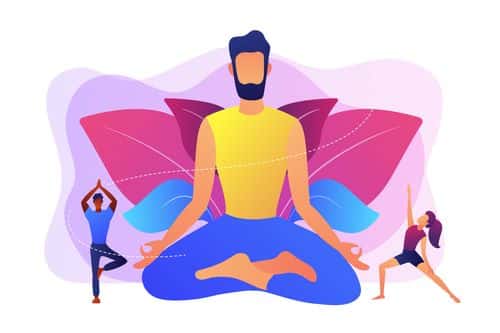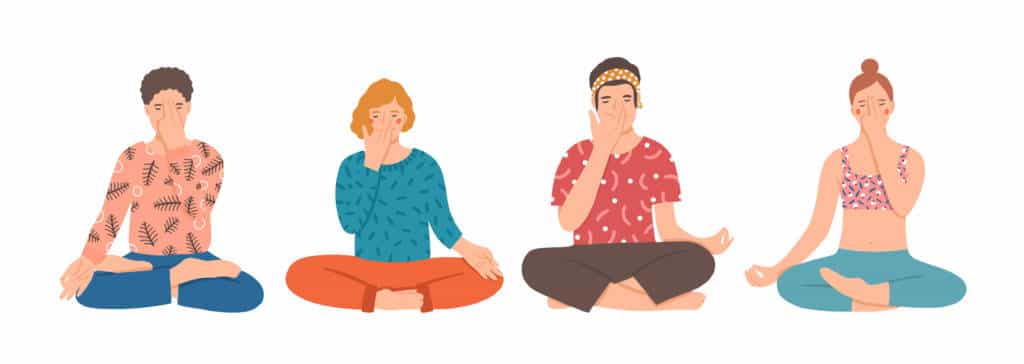Crisis Fatigue – How to Prevent Covid19 From Taking Over Your Life

Dr.Swati Shukla
October 20, 2020

Dr.Swati Shukla
October 20, 2020
Millions of cases of COVID-19 have emerged as of now and are still increasing. Extended lockdowns and social distancing have permeated into our lives. People have to face long hours of working from home. All of this has become the new normal, something that the entire world must grapple with. But in this new reality, there are growing numbers of cases of people feeling exhausted and demoralized. The news is not only full of an increasing number of coronavirus cases and deaths, but also with protests, terror attacks, wildfires, economic decline, and loss of human life in addition to the ones lost to the pandemic.
It is, therefore, no surprise that people are increasingly feeling stressed, anxious, burned out, and do not have a grip on how they feel any more. Psychologists call this feeling of constant tiredness, ‘crisis fatigue’.

You must have heard of the human body’s “flight or fight” response. It is what the body undergoes when presented with a stressful situation. Imagine how quickly your heart rate increases if a dog starts running behind you. Now imagine that happening for a few months and that too, every single day. Yes, it is a lot of stress to handle.
When your body is presented with a stressor, it releases cortisol and adrenaline that sharpen your senses to any danger around you. This response is a saviour for humans. But when we experience prolonged stress and if this phase lasts for months, it has harmful effects on the body. What happens is what experts call “crisis fatigue”. The body is flooded with cortisol and you can start feeling overwhelmed.
With the kind of relentless stress that our minds and bodies go through every day, it is common to start feeling numb. This leads the way for days that go by where you do not feel like doing anything, and crisis fatigue slowly and steadily takes control of your life.
So how do you know if you are suffering from crisis fatigue? You can read through some indicators to know better.
To ensure that there are some levels of normalcy in your life, try to stick to the routine that you usually follow. Focus on getting 6-8 hours of sleep daily so that your body can slowly recover. Try to get into your usual routine to the best of your ability to not to feel like you are drowning.

Self-care is essential for self-preservation. You need to give yourself time to do things just for yourself to rewind and relax. Whenever you find yourself feeling stressed and overwhelmed, allow yourself to take a break and enjoy some time for yourself. Take up activities that can happen safely during the lockdown and indulge in activities such as painting, dancing, cooking, gardening, etc.
3. Focus Your Energy CorrectlyYour energy drives you every day, and you should invest and channelize it in the right direction. For example, if you think that watching the news in the morning drowns you, then you should try and do some calming exercise instead. It is essential to be informed about the happenings around you but do so in a manner that does not make you feel unduly stressed.
It is very easy to forget things that bring joy when faced with multiple crises. To avoid being overburdened with everything going wrong, you should try to focus on things and activities that make you happy. Noticing such things will make you a little hopeful about life.

Regular exercise every day can help your body and your mind feel better. With the release of chemicals in the brain like dopamine, your mood will get uplifted immediately. This, along with meditation, can help you keep your mind balanced and control the fatigue affecting you.

You must talk to experts who are well-equipped with handling crisis fatigue. If you are not able to navigate through this phase yourself, please try to seek help from professionals.
If you are working currently and the never-ending deadlines are causing you to feel even more fatigued, try talking to your superior about how you’re feeling and how it’s impacting your day-to-day life. By getting more realistic deadlines, you can focus more time on healing.

Various breathing exercises such as Pranayama, Relax breath, Box breathing etc. have been devised to calm ourselves. By utilizing any of these and focusing on your breath, you can try shutting the excessive stressors you come across daily. One way how the body reacts to stress is by faster breathing. These exercises will help slow them down and relax you.
In times as uncertain as these with immense overload of global information, our body can only take so much. Crisis fatigue is a response to the environment and indicates how your body is suffering from the crises. While the stress mechanism was meant to help us, crisis fatigue has become a real issue because of the amount of content and media influx that is occurring.
Humans are social animals, and after being deprived of some of their most inherent needs, they tend to suffer. The coronavirus pandemic has no end in sight as of now, and these preventive measures to keep people safe will keep going on. And so will the crisis fatigue one feels. The important thing to do is to understand what your body undergoes and try to cope with it as quickly as possible. If one identifies this fatigue soon and can implement measures in their day-to-day life, it will make it easier for them. The feeling of burnout can make you feel exhausted, so take steps that make you feel better. Visit HealthifyMe for more detailed analyses of ongoing health issues during COVID-19.
A. It is crucial that during this time of fatigue, you should try and cope with how you’re feeling with the various tips given above. The constant focus on what’s happening outside will only make it worse for you.
A. The sleeping pattern has probably been disrupted due to crisis fatigue. Because your body has to undergo a constant state of stress, it is very common for you not to be able to have a good night’s rest.
A. Crisis fatigue can make you feel anxious and overwhelmed thus leading to a state where it becomes next to impossible to pay attention and focus on what you’re doing.


Thank you for sharing this informative Article! It is very useful to everyone. Stay healthy and keep safe!
Small, comprehensive and easy to understand . Thank you